Introduction
Employee Stock Ownership Plans (ESOPs) are often shrouded in myths and misconceptions. It’s crucial to debunk these myths to understand the true nature and benefits of ESOPs.
Myth 1: ESOPs Compromise Company Control
One common misconception is that implementing an ESOP means losing control of the business. In reality, ESOPs can be structured in various ways, allowing business owners to remain involved with decision-making and company direction.
Myth 2: ESOPs are Only for Large Companies
Many believe ESOPs are only feasible for large corporations. However, small and medium-sized businesses can also benefit from ESOPs. These plans can be tailored to fit the size and needs of smaller companies, providing them with the same advantages of employee ownership.
Myth 3: ESOPs are Overly Complicated and Costly
While setting up an ESOP involves some complexity and costs, in some cases, it’s can be exaggerated. The process can be navigated successfully with proper guidance and planning. When compared to other business structures or succession plans, the costs and complexities are relatively competitive, especially considering the potential benefits.
Myth 4: ESOPs Provide Immediate Financial Benefits
Another misconception is that ESOPs offer immediate financial benefits to employees. ESOPs are designed for long-term investment and retirement planning, meaning the significant financial benefits for employees generally accrue over time.
Myth 5: ESOPs Negatively Affect Company Performance
Contrary to the belief that ESOPs might hinder company performance, evidence suggests the opposite. Studies have shown that employee-owned companies often experience increased productivity, higher employee morale, and improved financial performance, owing to the vested interest of employee-owners.
Conclusion
Debunking these myths is essential for a true understanding of ESOPs. Whether you’re a business owner or an employee, it is important to seek accurate information and expert advice when considering an ESOP. Clearing these misconceptions paves the way for informed decisions about employee ownership.

